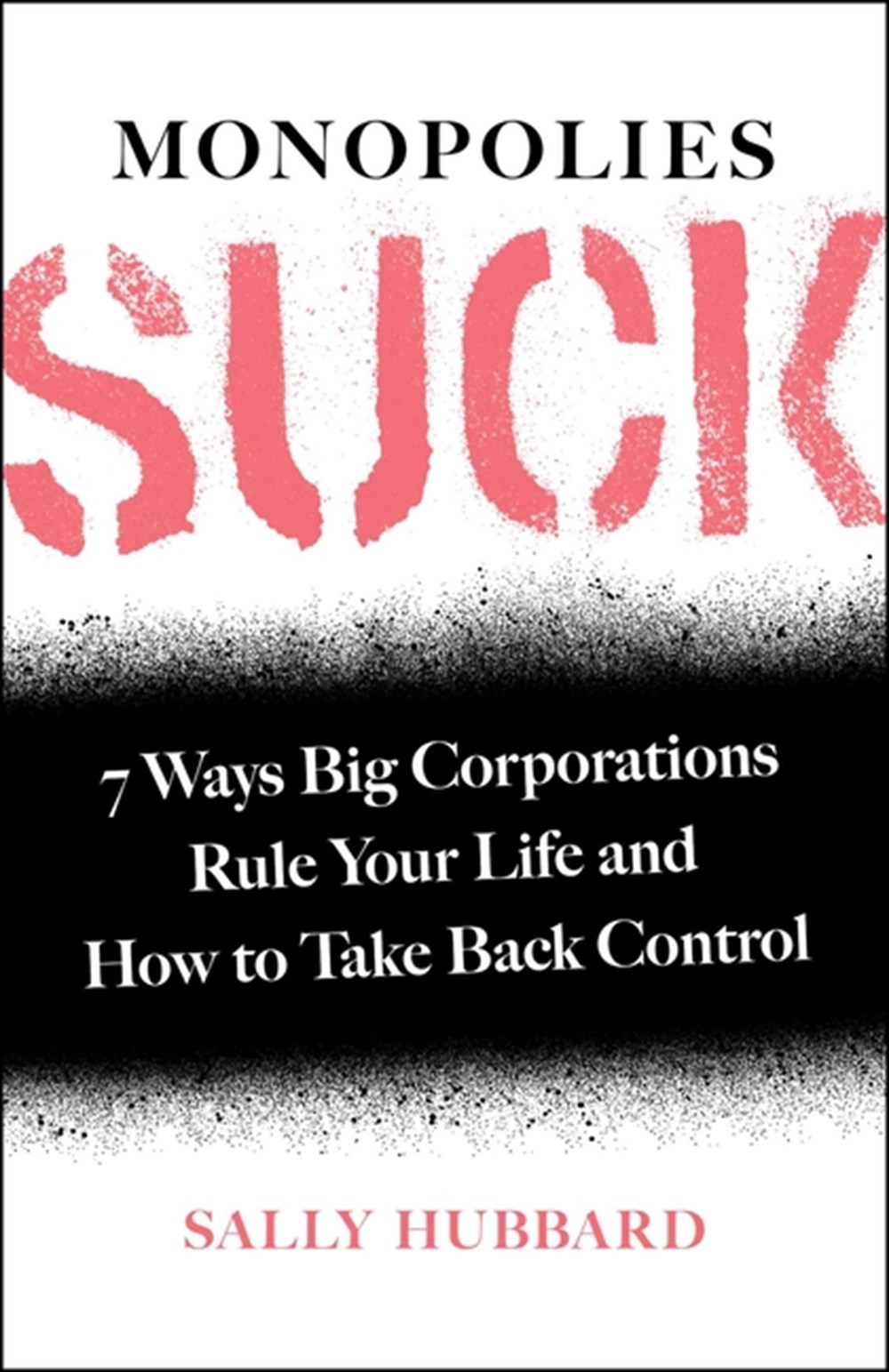Monopolies Suck: 7 Ways Big Corporations Rule Your Life and How to Take Back Control
 Something’s not right. No matter how hard you work, life seems to only get harder. When your expenses keep going up but your income stays flat, when you’re price-gouged buying medicine for your child’s life-threatening allergy, when you live in a hyped-up state of fear and anxiety, monopoly power is playing a key role. In Monopolies Suck, antitrust expert and director at the Open Markets Institute, Sally Hubbard, shows us the seven ways big corporations rule our lives—and what must be done to stop them.
Something’s not right. No matter how hard you work, life seems to only get harder. When your expenses keep going up but your income stays flat, when you’re price-gouged buying medicine for your child’s life-threatening allergy, when you live in a hyped-up state of fear and anxiety, monopoly power is playing a key role. In Monopolies Suck, antitrust expert and director at the Open Markets Institute, Sally Hubbard, shows us the seven ways big corporations rule our lives—and what must be done to stop them.
The U.S. failed to protect its citizens against COVID-19, and corporate mergers led to a shortage of ventilators and critical medical supplies, while hospital monopolies underpaid vital health care workers. Small businesses are shuttering without government support, while the most powerful companies profiteer. The economy is not working for the middle class, and monopolies are amplifying the systemic racism and misogyny that instigated a summer of protests and unrest. The Department of Justice is filing antitrust charges against Google. We are facing yet another presidential election season where Big Tech companies like Facebook will profit off of disinformation, allowing foreign interference and unscrupulous campaigns to manipulate voters and orchestrate polarization.
Just as monopolists who controlled entire industries like railroads and oil were aptly called “robber barons” because they extracted wealth from everyone else throughout history, today’s monopolies are no different. By charging high prices, skirting taxes, and reducing our pay and economic opportunities, they are not only stealing our money, but also robbing us of innovation and choice, as market dominance prevents new companies from challenging them. They’re robbing us of the ability to take care of our sick, a healthy food supply, and a habitable planet by using business practices that deplete rather than generate. They’re a threat to our private lives, fair elections, a robust press, and ultimately, the American Dream that so many of us are striving for.
In this inviting, accessible guide, Sally Hubbard gives us an easy-to-understand overview of how monopolies harm regular Americans every single day, as the giants violate antitrust law, and urges us to use our voices, votes, and wallets to protest monopoly power. Monopolies Suck is broken down easily into eight chapters—the first seven are each devoted to one way monopolies rule our lives, and the last on “How to Take Back Control”:
- Monopolies Steal Your Money
- Monopolies Gouge You When You’re Sick
- Monopolies Lower Your Pay and Crush the American Dream
- Monopolies Spy on and Manipulate You
- Monopolies Threaten Democracy and Your Freedom
- Monopolies Are Destroying Our Planet
- Monopolies Ramp Up Inequality
Emboldened by the previous century when we successfully broke up monopoly power in the U.S., we have the tools to dismantle corporate power again today—before their lobbying threatens to undermine our economy and democracy for generations to come.
ABOUT THE AUTHOR
Sally Hubbard is an antitrust expert and Director of Enforcement Strategy at the Open Markets Institute, an organization developing solutions to America’s monopoly crisis. She served as an Assistant Attorney General in the New York AG Antitrust Bureau, and was an investigative journalist covering mergers, monopolies, and privacy. She has testified before the U.S. Senate, House of Representatives and Federal Trade Commission. She appears and is cited regularly as an antitrust expert in a wide range of media, including The New York Times, CNN, BBC World News, Vanity Fair, Washington Post, The Atlantic, Wired, and hosts the podcast Women Killing It. She lives in Brooklyn with her husband and two children.
This book giveaway is being brought to you by Simon & Schuster. We have 20 copies available.




